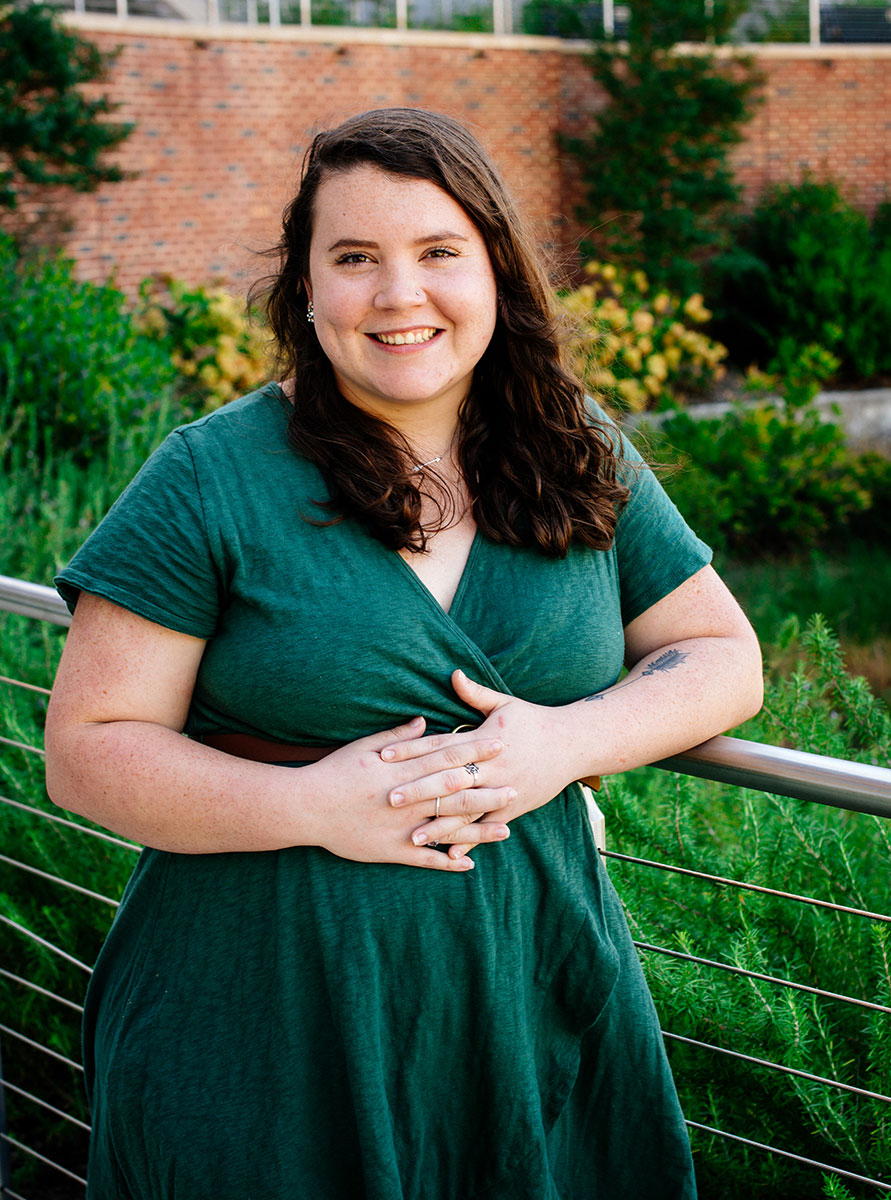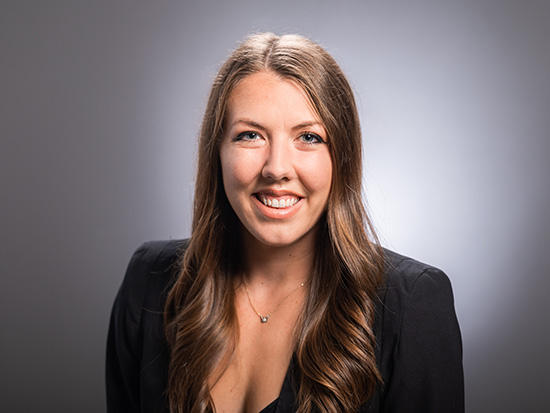 Alexandra “Lexie” Woolums, a junior pursuing an individually designed degree in Environmental Sciences and a minor in English through the UAB College of Arts and Sciences with a minor in public health from the School of Public Health, has been awarded the Obama-Chesky Scholarship for Public Service. Lexie, who is also a part of the UAB Honors College and serves as a Solar House Policy Intern, will be a member of the scholarship’s inaugural class of just 100 students chosen from a pool of nearly 1800 applicants.
Alexandra “Lexie” Woolums, a junior pursuing an individually designed degree in Environmental Sciences and a minor in English through the UAB College of Arts and Sciences with a minor in public health from the School of Public Health, has been awarded the Obama-Chesky Scholarship for Public Service. Lexie, who is also a part of the UAB Honors College and serves as a Solar House Policy Intern, will be a member of the scholarship’s inaugural class of just 100 students chosen from a pool of nearly 1800 applicants.
The Obama-Chesky Scholarship, also known as the Voyager Scholarship, was created by the Obamas and Brian Chesky, Airbnb CEO, to provide meaningful financial aid combined with transformational travel to students passionate about public service. The award includes up to $50,000 in “last dollar” financial aid for students’ junior and senior years, a $10,000 stipend and free Airbnb housing for a “summer voyage” work-travel experience, annual fall public service summits, access to a network of leaders through an ongoing speaker series, and a 10-year post graduation travel stipend.
“It is exciting to see a Blazer among the first cohort of Voyager Scholars,” said Michelle Cook, Ph.D., director of UAB’s Office of National and International Fellowships and Scholarships. “This award presents a truly life-changing experience in that it empowers recipients with financial need to pursue service opportunities and internships that might otherwise be inaccessible to them. This is the perfect opportunity for Lexie to expand her public service portfolio in preparation for future award competitions, graduate school, and beyond.”
How exactly did Woolums, a Mobile native, discover her interest in sustainability and find herself in the position to apply for and receive the Obama Voyager Scholarship? Read below to find out!
How did you discover your interest in Sustainability and Public Health?
I decided to take an extra science class during my junior year of high school. I ended up taking an AP Environmental Science class, and it absolutely changed my life. When I came to UAB, I was an undeclared major and I realized that anytime I got to choose a project topic, I choose something related to environmental policy and the human relationship with the natural environment. After being a public health major for a while, I designed my major with a focus on the human relationship with the natural environment.
What would you say your specific interests or passions are within the field of Sustainability?
My main interest is in improving environmental policy to preserve biodiversity and to improve human health. I am mostly interested in the way a healthy environment impacts humans. I am also interested in writing/communications about climate change and sustainability because much of the current discourse among the public surrounding it is incomplete or politicized, making it much harder to help Alabamians understand why protecting the environment is important and how our survival relies on a healthy environment.
You’ve previously mentioned an interest in social, economic, and environmental sustainability. Most people have heard the word sustainability as it relates to the environment but may not have heard of social or economic sustainability. How do you explain these aspects of sustainability?
When most people think of sustainability, they think about the images of saving endangered species or reducing their single-use plastic consumption. While those things are important, it is more important to consider the three pillars of sustainability, which are social, economic, and environmental. Sometimes, people refer to this as the 3 Ps instead: “people, profit, and planet.” Regardless, these three pillars are intertwined, and they are all important for long-term sustainable development. At the end of the day, the economy cannot exist without a society to support it, and society cannot exist outside of the natural environment. We see examples of social and economic sustainability everyday but may not recognize them as such. For example,
Historically, many indigenous populations have been removed from their lands in the name of conservation, even though they protected the environment they lived in for centuries. Many other minorities have been forced to live in polluted areas due to government inaction or large businesses polluting the air and water. Each of these situations are examples where social sustainability is not included as a part of the conversation.
Additionally, the United States has a fast-paced culture, valuing a quick profit over quality and long-term economic sustainability. We live in a culture dominated by fossil fuels, fast fashion, and a disconnect from the people and places that produce the food and products we purchase. Many of the current industries in the US are not able to continue growing even within the next twenty years. It is imperative that we invest in systems that can outlast outdated systems relying on substances that are becoming increasingly limited. These issues show how much work we still have to do in terms of economic sustainability.
How have your experiences at UAB so far prepared you for the Obama Voyager application process and for future work within your field? Tell us a bit about your involvement.
Two main experiences have critically impacted me and helped prepare me for the Voyager Scholarship application process.
The first of these is my program within the Honors College, The Global and Community Leadership Honors Program (GCL). GCL students take a course called “Burning Issues,” which helps us identify what the issue we are most passionate about is. I took it in the spring of my freshman year, and the realization that hit me was how closely related all our Burning Issues were. We had projects about redlining, lack of mental health care access, limited sex education in Alabama schools, high maternal mortality in rural counties, food insecurity, wage discrimination, and the politicization of climate science (my project). As we presented, I realized how interconnected our issues were, despite that they outwardly appeared to be independent problems. Seeing how systems fail the communities who desperately need them made me angry. That semester, I decided I wanted to work to make Alabama’s environmental policy better.
The other experience is my time interning at UAB Sustainability. I have been with them as the Solar House intern for about a year now, and I have learned so much about how environment-related policy functions in Alabama. That knowledge coupled with the professional experience of facilitating applications on behalf of the university are experiences I never expected to gain until after college. I am very thankful to have the experience with them and firmly believe it has helped prepare me for further professional experience.
The Obama Voyager Scholarship not only provides tuition assistance but also provides a $10,000 stipend and free Airbnb housing for a summer work-travel experience. Have you already made plans for your travel and how you will use this funding to gain more experience in your field?
So far, I am mostly considering interning in Washington, DC. Many of the environmental nonprofits there have a heavy policy focus due to their proximity to capitol hill. I hope to intern and volunteer with several nonprofits there to learn more about the way policy works in relation to environmental issues.
What are your plans after graduation?
As far as plans after graduation go, I’m still uncertain. I’ve looked into several Environmental Policy master's programs, and even considered some graduate programs at UAB. I would like to work in the nonprofit sector at a local environmental nonprofit. I’ve also looked into several internships with the EPA and other government agencies, which I think could be a good path for me too. In terms of the travel stipend provided through this scholarship, I am hoping to use it to travel abroad, since I have never been outside of the United States. Many other countries have much different approaches to the way they view the environment, causing different policies and attitudes towards preserving it, so I would like to be able to travel and learn more about the relationship other cultures have with the natural environment.
If you are interested in learning more about applying for the Voyager Scholarship or other prestigious awards, contact the UAB Office of National and International Fellowships and Scholarships for application and essay assistance through email at fellowships@uab.edu or visit their website.


